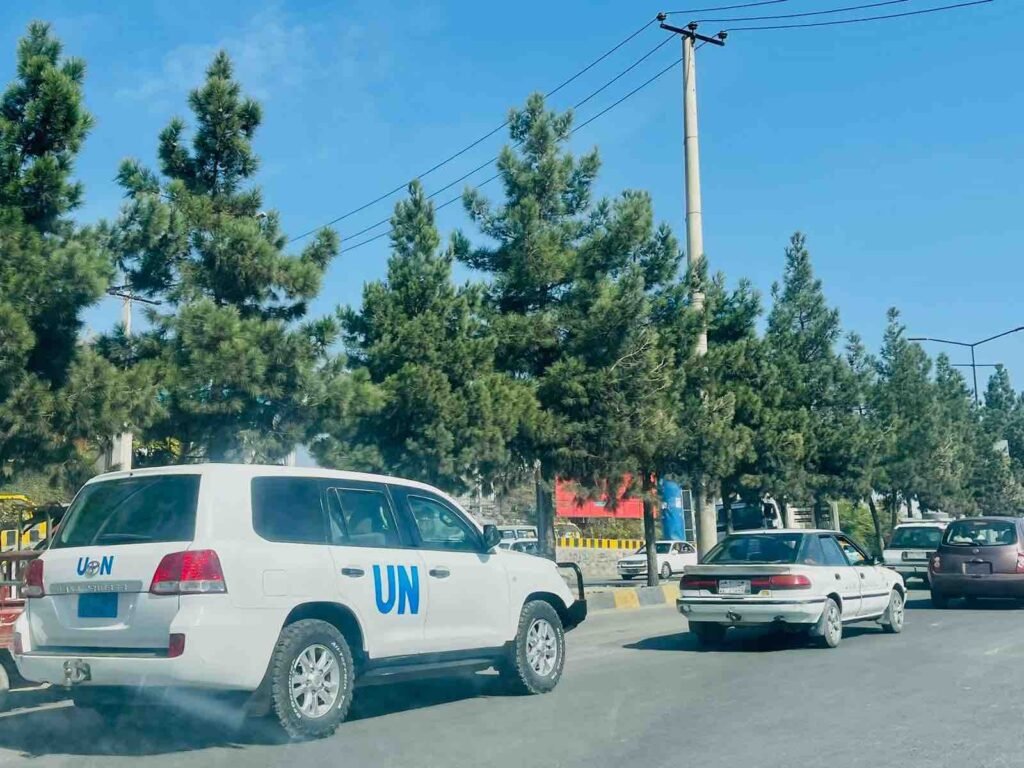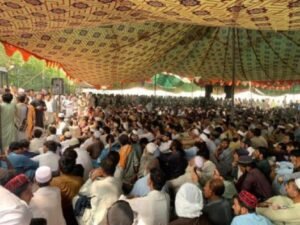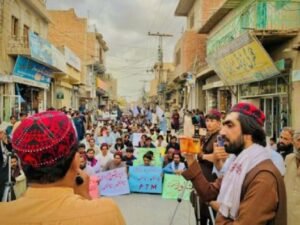Will the UN Stand Firm on Afghan Women’s Rights in the Upcoming Doha Meeting?

A UN vehicle in Kabul. Photo by @SS Ahmad for ADN
By Nazila Jamshidi
After the second Doha meeting on February 18th and 19th in Qatar, the United Nations (UN) will lead the third Special Envoys Conference on June 30th and July 1st in Doha. The UN aims to enhance international engagement with Afghanistan in a more coherent, coordinated, and structured way. To this end, they have invited the Taliban to attend the third Doha meeting.
Dissatisfied with the Taliban’s absence from the second Doha meeting, the UN announced that Rosemary DiCarlo, the Deputy Secretary-General, has traveled to Afghanistan to negotiate the Taliban’s participation in the third Doha conference. She also met with officials, the diplomatic community in Kabul, and representatives of civil society. Additional efforts to ensure the Taliban’s involvement included Mohammed bin Abdulaziz bin Saleh al-Khulaifi, Qatar’s Minister of State for Foreign Affairs, extending an invitation to the Taliban leadership through a series of meetings in Kabul.
Chief Taliban spokesman Zabihullah Mujahid stated, “The participation of the Islamic Emirate’s delegation in the Doha meeting is under discussion, and if the interim government’s conditions are accepted, their representative will attend the meeting.”
The Taliban have issued six conditions for their participation, including the exclusion of representatives from civil and political society in exile or the Afghan diaspora, and the omission of women’s education and employment from the meeting’s agenda. The conditions are irrational but not surprising considering the Taliban ideology and policy on women.
The conditions raised criticism from Afghan women’s rights groups and activists towards the U.N. for inviting the Taliban to the upcoming Doha meeting, arguing it would embolden the Taliban to further tighten their restrictions on women. These groups are launching various campaigns, including signing petitions, to condemn the third Doha meeting and voice their opposition.
The U.N. Secretary-General had rejected similar conditions from the Taliban for the second Doha meeting, stating, “These conditions, first of all, denied us the right to talk to other representatives of Afghan society and demanded a treatment that would, I would say, to a large extent be similar to recognition.”
How the Secretary-General will react to the Taliban’s conditions for the third Doha meeting, specifically regarding civil society participation and including women’s rights in the discussion, is something women are anxiously waiting to hear and are deeply concerned about.
U.N. spokesperson Stephane Dujarric, responding to criticism, told reporters in New York that the organization continues to engage with the Taliban “because they are the de facto authorities in Afghanistan.”
Dujarric emphasized that the U.N. is persistently urging the Taliban to uphold the rights of women and girls and advocating for increased humanitarian aid for the Afghan people. He did not mention whether the U.N. intends to accept the Taliban’s conditions for attending the meeting.
The Taliban’s potential participation raises concerns about the U.N. potentially compromising on some of the Taliban’s conditions, specifically regarding the rights of women to attend and speak for themselves and including women’s dire situation in the discussions.
Additionally, women still do not know whether their representatives are invited to the meeting, which leads to many concerns and questions about the transparency and inclusiveness of the meeting.
Women expect the UN to uphold its values and principles of human rights, particularly regarding women’s rights, and to avoid compromising on discussions about women’s participation and issues. However, the UN has not yet provided any assurance to women on this matter.
It is unlikely that the UN will accept other Taliban conditions for attending the meeting, such as securing a seat at the United Nations, withdrawing the current representative, and giving the seat to the Taliban.
Consequently, there is a fear that to meet some of the Taliban’s conditions, the UN might compromise on women’s participation or discussions about their rights and situation.
Although nothing is clear yet, women are understandably concerned and deserve clarity regarding the third Doha meeting. Women continue to raise their voices through statements and campaigns, hoping to be heard and to ensure their rights are not compromised.
It is time for the UN to provide the clarity that women deserve, just as much as they are striving to secure the Taliban’s participation in the meeting.
Nazila Jamshidi – a gender equality and human rights specialist involved in Afghanistan’s development and democracy processes for the past decade – has worked for the UN, USAID, the International Federation of Red Cross.
Note: The contents of the article are of sole responsibility of the author. Afghan Diaspora Network will not be responsible for any inaccurate or incorrect statement in the articles.






